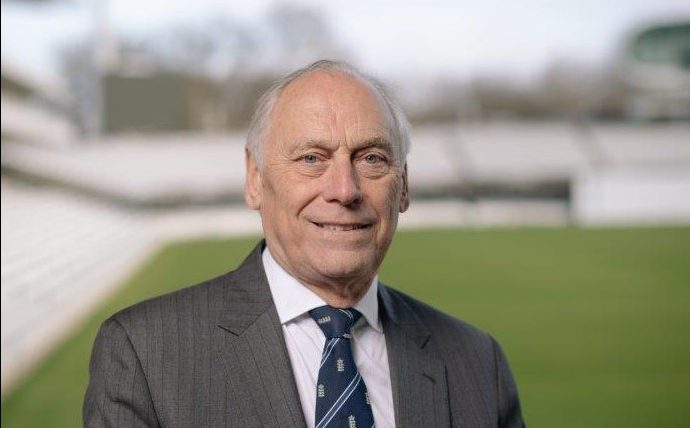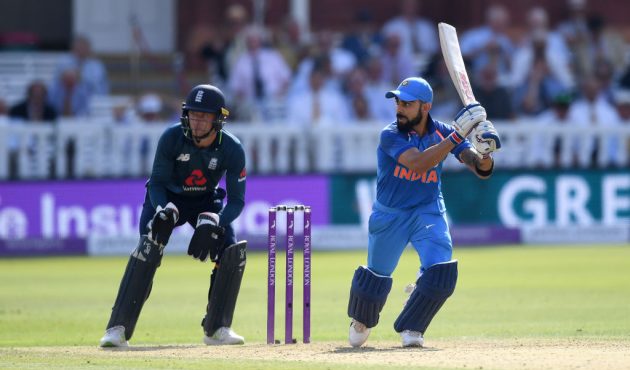Former England cricket chief Colin Graves: ‘I know Indian investment in The Hundred is there if the doors are opened’

Colin Graves may have stepped down as chairman of the England and Wales Cricket Board (ECB) last year but he is not done shaping the game he loves.
This month, the 73-year-old joined the board of Oakwell Sports Advisory, which advised CVC Capital Partners on its investment in Premiership Rugby and the Pro14.
The man who made an estimated £90m fortune by founding the Costcutter chain of convenience stores now sees cricket in the shop window.
“Covid-19 has changed the world in a lot of ways and it certainly has changed a lot of sports,” Graves tells City A.M.
“I think sports governing bodies and stakeholders are looking at their business models and how they can improve them. That’s the world we’re living in now, unfortunately.
“Cricket is in a good place. It’s got a good strategy, good executives, a good fan base. That’s another reason why I think people will look at it – if cricket wants to be looked at – to invest in.”
Sport and private investment
Private investment into sport was already a growing trend before the pandemic.
But the last 12 months has only increased that activity as institutional investors look to pounce on sports properties starved of cash by delayed or cancelled events and closed stadiums.
Italian and German football leagues plan to sell off stakes in their media rights businesses to institutional investors. The NBA is considering allowing minority stakes in multiple teams.
CVC is about to make the Six Nations its third rugby union interest. And US buyout firm Silver Lake wants a piece of the All Blacks.
“I think private investors will be looking at how they can help develop sports further,” adds Graves, who put £10m into reviving Yorkshire’s cricketing fortunes, becoming chairman after selling Costcutter in 2012.
“They can be looking at developing stadia, all sorts of things. This is a multi-opportunity that investors will look at, as they’ve done in most businesses before they came into sport.”
Graves says all sports can benefit from private investment “depending that they do it properly, start with a blank sheet of paper and say: ‘Right, what do you need? What do we need?’.
“Trying to get something that suits both parties, that’s the main thing. It’s not about just grabbing private investment to fill a black hole and then having consequences from it.
“And if private equity or private ownership comes in somewhere, everyone’s got to look after and remember grassroots cricket, because it is the future of the sport.”
Why Graves believes The Hundred will succeed
Graves is proud of his five-year spell as ECB chairman, which ended in lockdown conditions that required three or four video calls with colleagues each day.
Speaking with City A.M. via the same medium from Barbados, he cites the men’s and women’s World Cup wins as his most treasured memories from that spell, which also included signing a record £1.1bn broadcast deal with Sky and the BBC.
But his most significant legacy may turn out to be ushering in The Hundred, the new short-form competition due to begin this summer, a year later than planned.

Some traditionalists derided the idea when announced, but stakeholders voted 38-3 in favour and sponsors including Cazoo, KP and Vitality have leapt aboard.
“I’m sure it’ll do what we set out to achieve when we put it together. And that’s to bring a new exciting game to cricket, attract new fans, with families, women and children,” Graves says.
“It’ll be back on terrestrial television which is great. Everybody said we would never do that. Provided we do have crowds this year, it’s going to be sell-out crowds all the way around.”
Indian money on standby
The ECB chose to own The Hundred and distribute revenue to the 18 first-class counties, following a similar model to Australia’s Twenty20 competition the Big Bash.
But a report published at the start of the pandemic by Graves’s new employers argued for giving counties equity instead and opening it up to private investment.
Graves has since said that owners of Indian Premier League (IPL) franchises would be eager to invest in The Hundred, if the ECB were to change its stance.
IPL owners have already done so in the Caribbean and the US, and such a move might pave the way for India to let stars such as Virat Kohli play in The Hundred.
“It could happen. I think it will be great if we could do that to get Indian players playing in – it would be phenomenal,” he says.

“It would open up lots of other doors as well, but that’s down to the governing body, if they want that to happen. Because I do know Indian investment is sat there waiting to see if ever the doors are opened.
“India is such a cricket-mad nation. There are a lot of wealthy people in India, with the IPL we’ve all seen that, but there are other people, other opportunities. Let’s wait and see.”
Graves on the ‘phenomenal IPL’
There is commercial sense to building bridges with the Indian subcontinent, which accounts for 90 per cent of the world’s 1.1bn cricket fans aged 16-69.
The IPL, meanwhile, has set the standard for box-office cricket, selling its 2018-22 global broadcast rights for $2.5bn. For comparison, the ECB’s domestic TV deal for The Hundred is worth £170m over five years.
“The IPL is phenomenal and that was virtually all private investment,” says Graves.
“When people say capital investment, some people get excited that it’s venture capitalist and that sort of thing.
“Not necessarily. They’ll be one of the interested parties, I’m sure, but there are different ways, different models.
“If the IPL got involved somehow it would bring some expertise. They must have learned something over 10 years of doing a fantastic job.”
